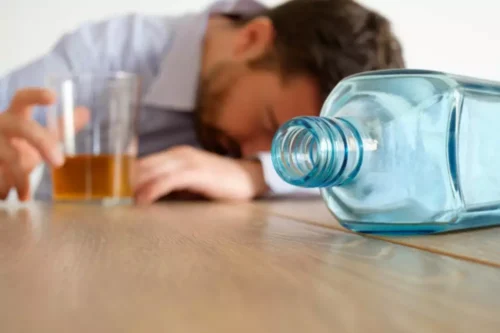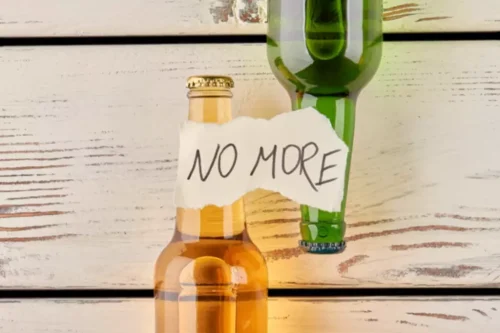
You can, however, take tips and suggestions on how you can make the experience a little easier. The acetaldehyde produced is not enough if you experience reddening and flushing in the neck or face area. Your liver breaks down the alcohol and turns it into the highly toxic and reactive chemical acetaldehyde.
How Long Does it Take to Get Alcohol Out of Your Blood?

“Sweating out” alcohol is one of the biggest myths surrounding how to get alcohol out of your system. The liver is responsible for breaking down alcohol, and it does so at a relatively steady rate, which is on average one drink per hour. For a person weighing 150 pounds, for example, one standard drink will increase their blood-alcohol concentration by about 0.02%, but the body can only remove about 0.016% per hour on average. Therefore, even if you consume only one drink per hour, your blood alcohol concentration (BAC) will continue to increase. You can start to feel the effects of alcohol in a matter of minutes.
Amount of Alcohol Consumed
Once alcohol is in your system, the natural question is how https://ecosoberhouse.com/article/do-alcoholics-drink-every-day/ to expedite its removal. While time and liver metabolism are the primary factors, there are steps you can take to support this process. Alcohol, commonly referred to in medical and scientific communities, is known as EtOH.
- Ensuring proper hydration is the first step towards supporting your body’s natural detoxification process.
- Several studies have shown that alcohol elimination rates in humans are typically between 0.12 and 0.16 g/L/h.
- Recovering from alcohol addiction can be a challenging and emotionally draining process.
- Knowing how long alcohol (ethanol) remains in your system is important for avoiding dangerous interactions with medications as well as impairments in your physical and mental performance.
- Prioritizing rest also reduces stress levels and supports mental and emotional recovery.
How Long Does Alcohol Stay in Your System (Blood, Urine and Saliva)?
Knowing how long alcohol (ethanol) remains in your system is important for avoiding dangerous interactions with medications as well as impairments in your physical and mental performance. While alcohol is not considered a controlled substance under the Controlled Substances Act (CSA), it is illegal how to flush alcohol out of your system to sell or serve to anyone under the age of 21 in the United States. Drinking stronger alcoholic beverages can accelerate the absorption rate. This causes alcohol to stay in your system for longer periods of time.
Drink Lots of Fluids
- It also forces you to breathe deeply, which delivers more oxygen to your liver so it can break down alcoholic drinks more effectively.
- The occasional glass of wine or cocktail isn’t anything to worry about unless you have a gut infection or are following an elimination diet.
- Whether it’s friends, family members, or support groups, having a network of individuals who genuinely care about your well-being can help you navigate the detox process more effectively.
- A urine test can detect alcohol for 2 to 3 days after the last drink.
Food also plays a role in alcohol absorption; drinking on an empty stomach sends alcohol directly into the small intestine for rapid absorption, intensifying its effects. Eating before or while drinking can slow this absorption, helping to moderate blood alcohol levels. Getting professional help with alcohol addiction detox offers both short- and long-term benefits.
If you take a breath or saliva test shortly after using alcohol-containing mouthwash or cough medicine, it may detect the metabolites of the alcohol in your mouth and create a false positive. The following is an estimated range of times, or detection windows, during which alcohol can be detected by various testing methods. In small amounts, you might feel more relaxed and open or less anxious, but the more you drink, the more intoxicated you’ll begin to feel. For some, this can mean being more talkative or very friendly, and others may begin to behave with anger or aggression. Be sure to make and go to all appointments, and call your doctor if you are having problems. It’s also a good idea to know your test results and keep a list of the medicines you take.


Although alcohol is typically metabolized within 25 hours, there are several factors that can make that process longer or shorter than average. Each of the above drinks contains 0.6 ounces of pure ethanol, which counts as a single serving of alcohol. However, those are based on the average strength of each type of alcohol.

- It takes five half-lives for your body to metabolize all of the alcohol you’ve had, anywhere between 20 to 25 hours on average.
- Medications like acamprosate, benzodiazepines, disulfiram, and naltrexone can help make withdrawal more manageable and sustain abstinence.
- While it can be temporarily enjoyable to consume alcohol, having it in your system doesn’t stay fun for long.
- Sunnyside’s coaches are experienced in helping you practice mindful drinking techniques, and supporting you on your journey.
- Factors that determine how long alcohol stays in your body include liver size, body mass and the amount of alcohol consumed.
- Here are some common methods and myths about flushing alcohol from your system.
- You have probably heard of different folk remedies for sobering up quickly, such as drinking a cup of coffee, taking a cold shower, or drinking lots of water.
A blood alcohol test can show evidence of alcohol in your system up to 12 hours later. Ark Behavioral Health offers 100% confidential substance abuse assessment and treatment placement tailored to your individual needs. Several studies have shown that alcohol elimination rates in humans are typically between 0.12 and 0.16 g/L/h.
Moreover, you shouldn’t use NyQuil as a sleep aid or for long-term treatment of symptoms. If you take more than the recommended dose, you may experience withdrawal symptoms. Drinking water, sleeping, or drinking caffeine does not remove alcohol from the blood, and will not speed up the process of getting alcohol out of the system. If you don’t have enough ADH or ALDH, your stomach will send the alcohol directly to the small intestine.
Medications Used in Treatment

The above times reflect the metabolism rate of a healthy, functioning liver. If you are a heavy or long-time drinker, your liver may require more time to eliminate alcohol from your body. How frequently and how fast you drink, as well as the alcohol content in your beverage, can all influence how long alcohol stays in your system. Roughly 20% of the ethanol in liquor is absorbed into the blood from the stomach and the rest from the small intestine. The longer alcohol stays in the stomach, the longer it takes to be absorbed and the slower the rate of intoxication. Eating before drinking and continuing to snack while you consume alcohol will slow the absorption and reduce its intoxicating impact, but it will prolong the detection period.
